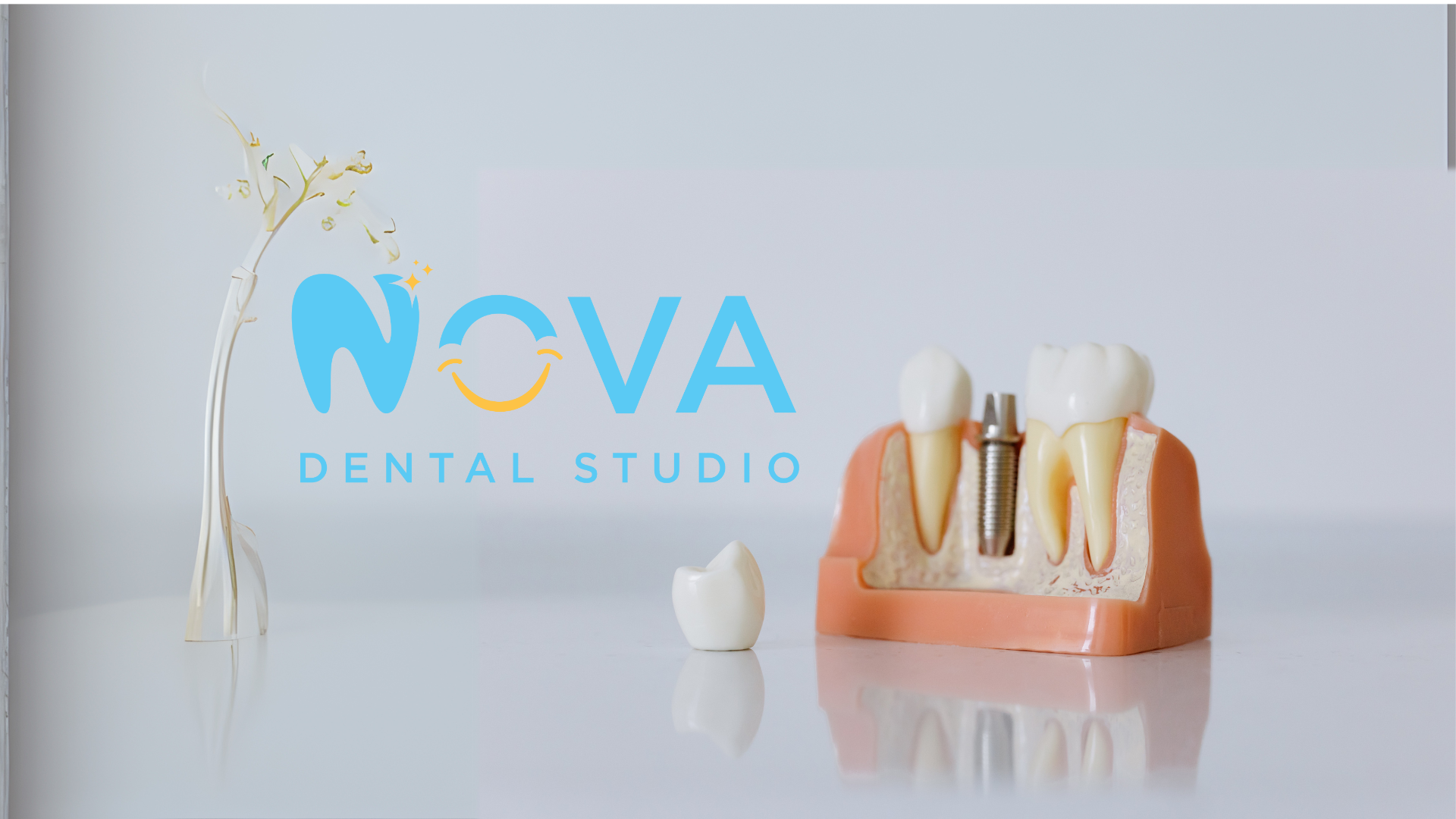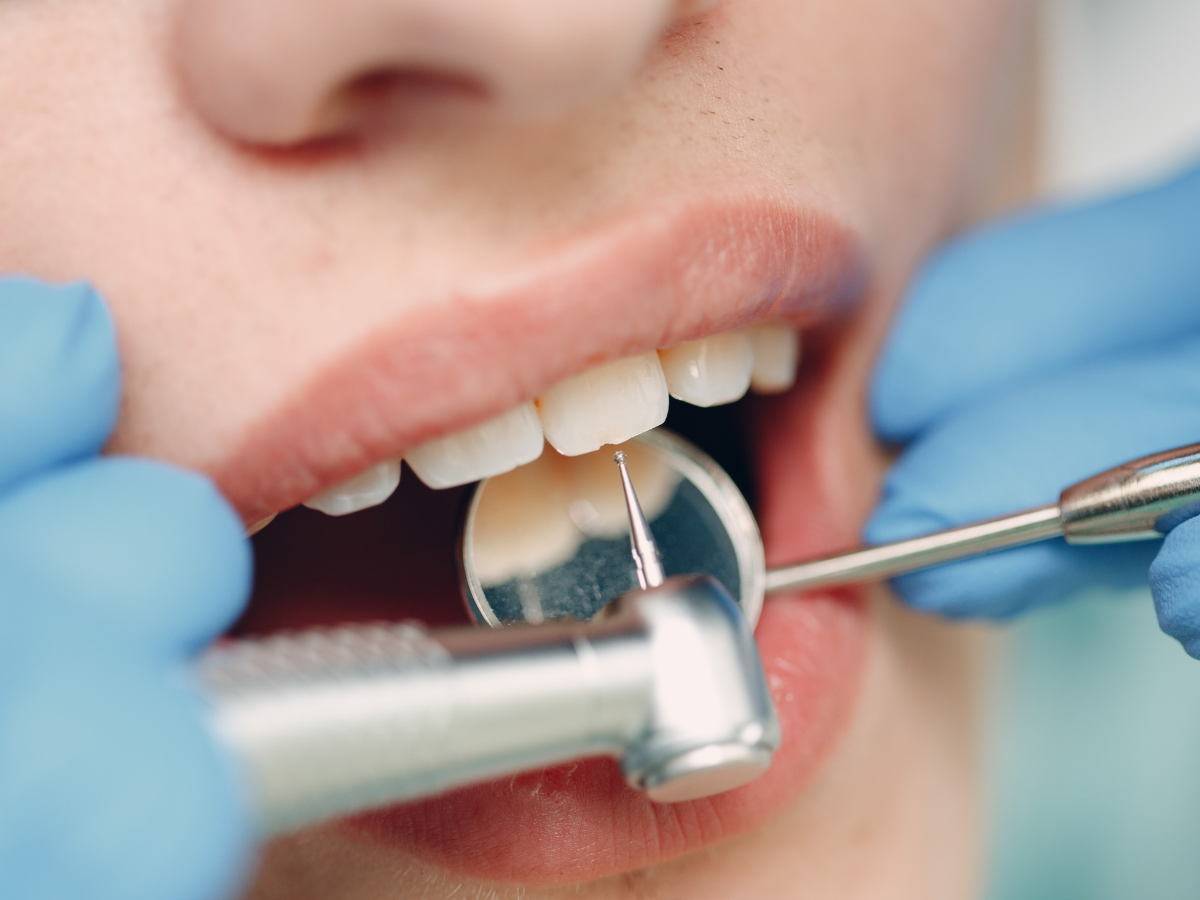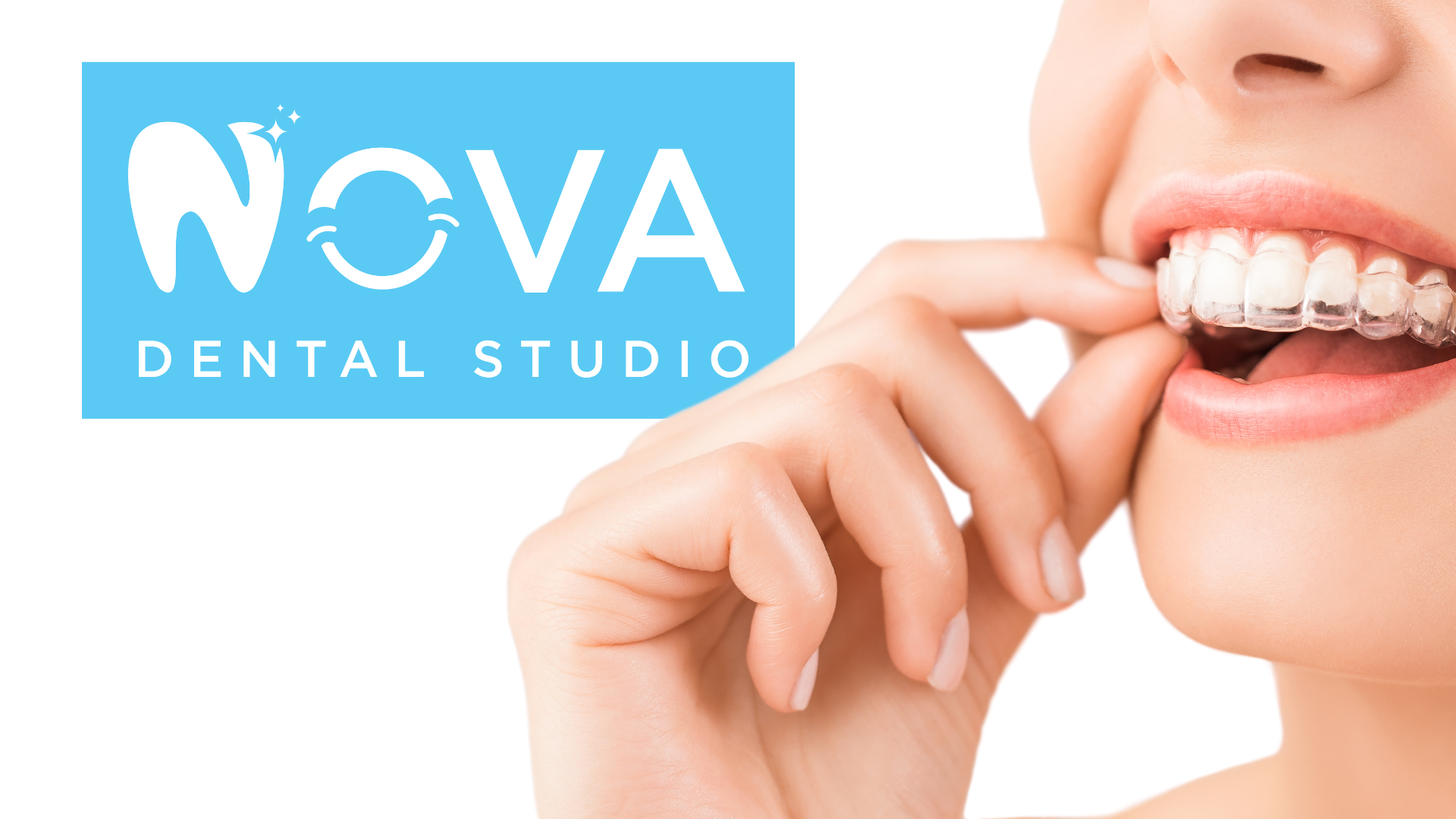Are You at Risk for Gum Boils? 7 Warning Signs to Watch For

Gum boils might not be a topic you think about daily, but they can be a real pain—literally. These pesky bumps can pop up in your mouth and cause quite a bit of discomfort. Understanding what they are and how to spot them early could save you from a lot of hassle down the road. At Nova Dental Studio, we believe in educating our patients to help them maintain optimal oral health.
Gum boils are more than just an inconvenience; they can be a sign of underlying dental issues. Ignoring them can lead to more severe problems, so it's crucial to be informed. In this article, we'll explore what gum boils are, their causes, and most importantly, how to recognize if you're at risk.
Regular dental check-ups and good oral hygiene practices are your best defense against gum boils and other oral health issues. Don't wait for discomfort to strike—stay proactive about your dental health.
Stay tuned as we delve into the risk factors and warning signs to watch for, ensuring you're well-prepared to tackle any gum-related issues head-on. Nova Dental Studio is here to guide you every step of the way.
What Are Gum Boils?
Gum boils, also known as abscesses, are pockets of pus that form on the gums. These painful bumps are usually a sign of an infection, often caused by bacteria. When bacteria invade the gum tissue, your body tries to fight back, leading to the accumulation of pus.
- Appearance: Usually, gum boils look like small, swollen bumps on the gums. They can be red or white and are often tender to the touch.
- Symptoms: Besides the visible bump, you might experience pain, swelling, and even a bad taste in your mouth if the boil bursts.
- Types: There are two main types of gum boils: periodontal abscesses, which occur in the gum tissue, and periapical abscesses, which develop at the root of a tooth.
At Nova Dental Studio, we emphasize the importance of early detection and treatment of gum boils to prevent further complications. If you notice any unusual bumps or discomfort in your gums, it's best to consult a dental professional promptly.
Understanding what gum boils are can help you recognize them early and seek appropriate care. Ignoring them could lead to more serious dental issues, so it's important to stay vigilant about changes in your oral health.
Causes of Gum Boils
Gum boils, also known as abscesses, can be pretty uncomfortable and are usually a sign that something's not quite right with your oral health. Understanding what causes these boils can help in managing and preventing them. Here’s a closer look at the common causes:
- Bacterial Infections: The most common cause of gum boils is bacterial infections. When bacteria invade the gums, they can cause an infection that leads to pus formation, resulting in a boil.
- Poor Oral Hygiene: Not brushing and flossing regularly can lead to plaque buildup, which harbors bacteria. Over time, this can cause infections in the gum tissue.
- Gum Disease: Conditions like gingivitis and periodontitis weaken the gums, making them more susceptible to infections and boils.
- Dental Procedures: Sometimes, dental work can irritate the gums, especially if there’s a complication or if the area doesn't heal properly.
- Tooth Decay: Cavities or untreated tooth decay can spread infection to the gums, leading to boils.
If you notice any signs of gum boils, it’s crucial to visit a dental professional. At Nova Dental Studio, our team is equipped to diagnose and treat these conditions effectively, helping you maintain optimal oral health.

Are You at Risk for Gum Boils?
Gum boils, or abscesses, can be a real pain, literally. They pop up when there's an infection in the gums, and they can be more common than you might think. So, what makes someone more likely to get these pesky problems? Let's break it down.
Risk Factor 1: Poor Oral Hygiene
Keeping your mouth clean is key. If you're skipping brushing or flossing, bacteria can build up and lead to infections, including gum boils. Regular dental check-ups at places like Nova Dental Studio can help keep your oral health in check.
Risk Factor 2: Gum Disease
If you have gum disease, you're already at a higher risk. This condition weakens your gums and makes them more susceptible to infections.
Risk Factor 3: Dental Infections
Untreated cavities or other infections in your mouth can spread to your gums, leading to boils. It's important to address any dental issues promptly.
Risk Factor 4: Smoking and Tobacco Use
Smoking and using tobacco products can harm your gums and increase your risk of infections. It's just another reason to consider quitting.
Risk Factor 5: Diabetes and Other Health Conditions
Conditions like diabetes can affect your immune system and make it harder for your body to fight off infections, including those in your gums.
Risk Factor 6: Stress and Immune System Health
Stress can take a toll on your immune system, making it easier for infections to take hold. Keeping stress in check is important for your overall health.
Risk Factor 7: Genetic Predisposition
Sometimes, it just runs in the family. If your parents had gum issues, you might be more likely to have them too.
Keeping an eye on these risk factors can help you manage your oral health better. Regular visits to Nova Dental Studio can provide the guidance and care you need to prevent gum boils.
7 Warning Signs of Gum Boils
Spotting gum boils early can make a big difference in how they're treated. Here are some signs you should be on the lookout for:
- Swelling in the Gums: If you notice your gums looking puffier than usual, it might be a sign of a gum boil. Swelling often indicates inflammation, which is a red flag.
- Pain or Discomfort: Are your gums sore or tender? Pain is often the body's way of signaling that something's wrong, and it shouldn't be ignored.
- Pus Formation: This is a clear sign of infection. If you spot any pus, it's time to see a dentist right away.
- Bad Breath: Persistent bad breath can be a symptom of gum boils, often due to the bacteria causing the infection.
- Bleeding Gums: While bleeding can happen for other reasons, if it's frequent and paired with other symptoms, it could be a warning sign.
- Loose Teeth: If your teeth feel loose, it might be due to an underlying gum infection, including boils.
- Changes in Gum Color: Healthy gums are usually pink. If they start turning red or even purple, it might be time to consult your dentist.
At Nova Dental Studio, we believe in proactive care. Regular check-ups and cleanings can help prevent issues like gum boils. Searching for a "dentist in Irvine" or "dental cleaning near me"? Our team is here to help keep your smile healthy and bright.
Keeping an eye out for these signs can help you catch gum boils early, making treatment easier and more effective. Remember, your dentist is your partner in maintaining great oral health.
Prevention and Treatment Options
When it comes to gum boils, prevention is your best bet. Keeping your mouth clean can help you avoid these pesky problems. Here are some practical steps you can take:
- Brush your teeth at least twice daily with fluoride toothpaste. This helps remove food particles and plaque that can lead to infections.
- Floss daily to get rid of debris and plaque between your teeth where your toothbrush can't reach.
- Visit your dentist regularly for check-ups and professional cleanings. This is crucial for catching any issues early on.
If you do find yourself with a gum boil, don't panic. There are treatment options available:
- Antibiotics: Your dentist might prescribe these to fight the infection causing the gum boil.
- Drainage: In some cases, a dentist may need to drain the boil to relieve pressure and pain.
- Root Canal: If the boil is due to an infected tooth, a root canal may be necessary to remove the infection.
At Nova Dental Studio, we emphasize the importance of early intervention and regular dental care. Taking these steps can make a big difference in your oral health.
Remember, maintaining good oral hygiene and seeking professional care promptly can save you a lot of trouble down the road. Don't hesitate to reach out to your dentist if you're concerned about gum boils or any other dental issues.
In wrapping up, it's clear that gum boils are more than just a minor inconvenience. They can be a sign of underlying oral health issues that need attention. Keeping an eye out for the warning signs and understanding the risk factors can make a big difference in maintaining your oral health.
- Regular dental check-ups are essential. They help catch problems early before they become serious.
- Maintaining good oral hygiene is not just important; it's necessary. Brushing and flossing daily can prevent many dental issues.
- Be aware of lifestyle factors, like smoking, that can increase your risk.
At Nova Dental Studio, we're committed to helping you achieve and maintain a healthy smile. Our team is here to provide guidance, support, and treatment options tailored to your needs.
Remember, your oral health is a part of your overall well-being. Taking steps to prevent gum boils and other dental issues is a smart move for your health. If you have concerns or notice any symptoms, don't hesitate to reach out to your dentist.
Frequently Asked Questions
What exactly are gum boils?
Gum boils are painful bumps that form on the gums, usually due to an infection. They can be filled with pus and may cause discomfort.
How can I tell if I have a gum boil?
If you notice a painful, swollen bump on your gums, it might be a gum boil. Other signs include redness, tenderness, and sometimes a bad taste in your mouth.
What causes gum boils to form?
Gum boils can be caused by poor oral hygiene, gum disease, or infections in the teeth or gums. Smoking and certain health conditions can also increase the risk.
Can gum boils go away on their own?
Sometimes gum boils might go away on their own, but it's important to see a dentist. They can help treat the infection and prevent further problems.
How are gum boils treated?
Treatment for gum boils may include antibiotics to clear the infection, draining the boil, and improving oral hygiene. Your dentist will recommend the best approach.
How can I prevent gum boils from happening?
To prevent gum boils, practice good oral hygiene by brushing and flossing daily. Regular dental check-ups and avoiding smoking can also help keep your gums healthy.









